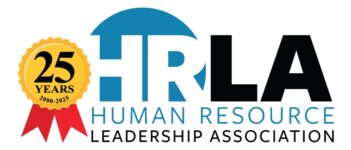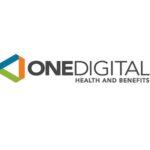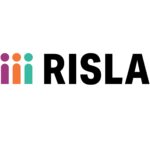EEOC Updates Guidance on Vaccine-Related Issues
Katie Quackenbush Comments Off on EEOC Updates Guidance on Vaccine-Related Issues
In December, the FDA approved the first two COVID-19 vaccines for emergency use, and at least two more vaccines are in the final stages of clinical trials. As these vaccines become available to certain sectors of the population, the EEOC has updated its guidance on pandemic related issues to include employee privacy and other legal considerations related to requiring or administering COVID vaccines in the workplace.
While it will likely be several months before most employees will be eligible to receive a vaccine, it is important for employers to educate themselves on the EEOC’s guidance in preparation for the broader vaccine rollout. The current EEOC guidance can be found at https://www.eeoc.gov/wysk/what-you-should-know-about-covid-19-and-ada-rehabilitation-act-and-other-eeo-laws
Can Employers require Employees get vaccinated?
Yes. Subject to medical and/or religious accommodations, employers can require employees to get a COVID-19 vaccine when it becomes available to their sector. Employers may choose to administer the vaccine to its employees in the workplace or requires employees to get vaccinated through their own medical provider.
What type of information or documentation can Employers request from Employees?
While the administration of the vaccine itself is not considered a “medical examination, pre-vaccine medical screening questions may give rise to issues of confidentiality of medical information under the ADA. Medical screening questions which are considered “disability-related inquires” are not permitted under the ADA unless an employer can show that these inquiries are “job-related and consistent with a business necessity.” Pre-vaccination screening questions which ask about genetic information may also trigger requirements under GINA.
Similarly, requiring employees to show proof of receipt is not a “disability-related inquiry” and therefore does not trigger any ADA or GINA considerations. However, subsequent questions, such as asking why an employee did not receive a vaccination, may elicit information that could be subject to ADA and/or GINA considerations.
What happens if an employee is unwilling or unable to get the COVID-19 vaccine?
Employees may not be able or willing to get a COVID-19 vaccine due to either a disability or a sincerely held religious belief or practice. While, employers may exclude these employees from their workplaces as a direct threat in the workplace, employers will need to determine whether a reasonable accommodation, such as remote work or temporary relocation, can be made for that employee. An employee’s eligibility to take leave under the FMLA, federal or state leave laws, or employer policies under these circumstances should also be explored prior to considering employee separation.
Are mandated vaccines a subject of bargaining in a unionized workplace?
While the State Board of Labor Relations has not currently provided guidance on the issue, it seems likely that unionized workplaces will also be able to require employees get vaccinated due to the employer’s obligation to provide a safe working environment. It does seem likely, however, that employers will be obligated to engage in bargaining over the implementation of the vaccine and over accommodations for employees who refuse or are unable to get vaccinated.
***
The EEOC guidance does not interfere with or prevent employers from following CDC or other federal, state, or local public health authorities’ guidelines and suggestions, and advises employers to continue to follow guidance from those authorities as well.
Related articles
-
 President’s Announcement August...
President’s Announcement August...Comments Off on President’s Announcement August 2022 RE: Sept 1 Volunteer Opportunity
-

-
 We’re Accepting Scholarship...
We’re Accepting Scholarship...Comments Off on We’re Accepting Scholarship Applications!
-
 Register Today for Tri-State 2024
Register Today for Tri-State 2024Comments Off on Register Today for Tri-State 2024
-
 CT HR Excellence Award –...
CT HR Excellence Award –...Comments Off on CT HR Excellence Award – Nominations Due March 31st
-
 Scholarship Winners!
Scholarship Winners!Comments Off on Scholarship Winners!
More in this category
-
 CT HR Excellence Award –...
CT HR Excellence Award –...Mar 11, 2024 Comments Off on CT HR Excellence Award – Nominations Due March 31st
-
 Registration is Open for the...
Registration is Open for the...Nov 28, 2022 Comments Off on Registration is Open for the 2023 Tri-State SHRM Conference – Join us April 23rd-25th at the Mohegan Sun!
-
 Keynote Speakers for 2022 Tri-State...
Keynote Speakers for 2022 Tri-State...Mar 06, 2022 Comments Off on Keynote Speakers for 2022 Tri-State SHRM are Announced – Join us April 24-26th at the Mohegan Sun!
-
 Interview Coaches Needed
Interview Coaches NeededMar 03, 2022 Comments Off on Interview Coaches Needed
Upcoming Chapter Events
- 25th Anniversary Summer Social - CT Sun GameThu Jul 24 2025, 07:00pm EDTMohegan Sun Arena
- Employment Law UpdateThu Oct 23 2025, 05:30pm EDTHoliday Inn
- AI for Human ResourcesTue Nov 18 2025, 4:00pm ESTEastern CT State University
- Annual Meeting & Holiday PartyTue Dec 2 2025, 5:30pm ESTLake Of Isles Golf Club
Upcoming Professional Events
Thank you to our Sponsors!
Want to see your logo here? Visit our Sponsorship Page to learn how!



